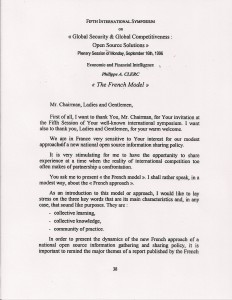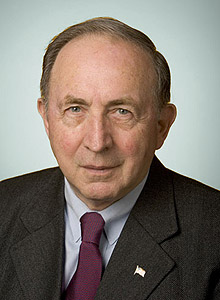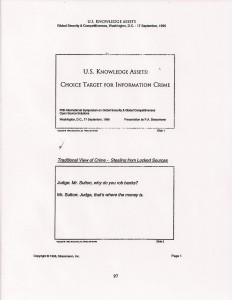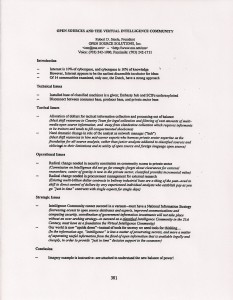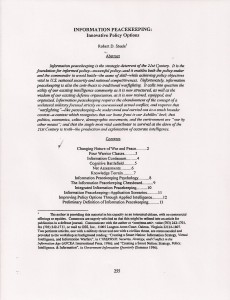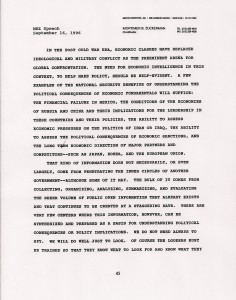
Philippe Clerc has been active in World Information Forum and related activities at the international level, and in France within the emergent economic and financial intelligence environment. Below is his presentation to OSS '96.
It merits mention that the French learned a hard lesson in 1993–their steel industry realized that their competitive intelligence effort against all other steel industries had failed because they did not consider steel substitutes–the plastics industry emerged overnight and supplanted steel in the automobile industry and elsewhere. It was while learning this in Paris in 1994 that we realized it was vital to “cast a wide net” and not narrow-cast open source information acquisition.

